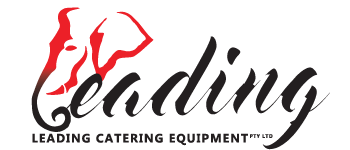In today's culinary world, meeting diners' needs with special dietary requirements is no longer optional—it's essential. Whether catering to allergies, religious dietary restrictions, or lifestyle preferences, adapting your commercial kitchen to handle these requests can significantly expand your customer base and reputation. However, your commercial kitchen equipment must be up to the task to meet these needs effectively. This comprehensive guide will help you adapt your commercial kitchen equipment for special dietary needs while maintaining efficiency, food safety, and quality.
Get consistent and even heating for precise prep tasks with easy-to-clean smooth tops and adjustable heat settings to offer convenience. Take a look at our Electric Stoves.
Understanding Special Dietary Needs
Before diving into equipment adaptation, it's essential to understand the types of dietary needs your kitchen might cater to:
- Food Allergies and Intolerances
Common allergens include nuts, shellfish, gluten, dairy, soy, and eggs. Kitchens must prevent cross-contamination to protect customers with severe allergies.
2. Religious and Ethical Restrictions
Some dietary restrictions are based on religious beliefs, such as halal (Islam), kosher (Judaism), or vegetarianism (Hinduism). Others, like veganism, stem from ethical or environmental concerns.
3. Health-Driven Diets
These include low-carb, keto, diabetic-friendly, or heart-healthy diets. Such requests require specialised preparation and ingredients.
4. Cultural or Lifestyle Preferences
Gluten-free, dairy-free, paleo, and plant-based diets have grown popular among diners seeking specific health benefits or adhering to personal beliefs.
Adapting Commercial Kitchen Equipment: A Step-by-Step Guide
- Dedicated Equipment for Allergen-Free Prep
Designate specific equipment for these dishes to ensure a safe environment for preparing allergen-free meals. Key tools include:
- Colour-Coded Cutting Boards and Utensils
Use a separate set of colour-coded cutting boards, knives, and tongs for allergen-specific tasks. For instance, blue boards are used for seafood, green for vegan, and purple for allergen-free preparation.
- Allergen-Specific Cooking Appliances
Equip your kitchen with dedicated fryers, grills, or ovens for allergen-free dishes. This step eliminates cross-contamination risks that can arise from shared commercial catering equipment.
- Portable Induction Cooktops
These compact units prepare allergen-free meals separately from the main cooking line.
- Sealed Containers and Storage Units
Invest in airtight containers and separate storage racks for allergen-free ingredients. Label them clearly to avoid mix-ups.
- Investing in Multi-Purpose Equipment
Special dietary needs often require creative cooking techniques. Versatile kitchen equipment can help your team meet diverse dietary requests without compromising efficiency:
These ovens allow precise control over temperature and humidity, making them perfect for baking gluten-free bread, steaming vegetables for vegan dishes, or roasting meats for keto meals.
A commercial-grade blender can create smooth plant-based sauces, nut milk, and gluten-free batters. Choose models with multiple blending jars to avoid cross-contamination.
Vacuum-sealing ingredients preserve their freshness and prevent cross-contamination. They are handy for pre-prepping allergen-free items.
Sous vide commercial kitchen equipment for sale ensures consistent cooking results. It is ideal for preparing delicate items like egg-free custards or dairy-free sauces.
- Upgrading Refrigeration Systems
Refrigeration is crucial in food safety, especially when handling special dietary items. Here's how to adapt your cold storage:
- Dedicated Refrigerators and Freezers
Install refrigeration units for allergen-free, halal, kosher, or vegan ingredients. This step prevents contamination and ensures compliance with dietary standards.
Clear labels indicate which shelves or compartments are reserved for special dietary items. Use a color-coded mechanism for swift identification.
Upgrade to energy-efficient refrigerators and freezers that can handle increased storage needs without inflating utility bills.
- Improving Food Prep Stations
The layout and tools at your food prep stations can significantly impact your ability to handle dietary needs:
Ensure even food preparation and faster baking times compared to traditional ovens & get consistent results, whether roasting, baking, or broiling. Browse our Convection Ovens collection now.
Stainless steel workbenches with splashbacks are easy to maintain and clean, decreasing the risk of contamination during allergen-free food prep.
Create separate zones for preparing special dietary meals. Equip each zone with its tools and utensils to prevent crossover.
Use bulk component dispensers for normal dietary substitutes like gluten-free flour, plant-related proteins, and dairy-free milk. Keep them marked and separate from regular dispensers.
- Customising Cooking Equipment
When you shop commercial kitchen equipment, you can modify or supplement them to meet dietary requirements:
- Adjustable Grills and Griddles
Models with adjustable cooking surfaces allow you to prepare different types of dishes simultaneously without contamination.
- Steamers and Steam Tables
These are ideal for preparing and holding food for vegan, halal, or kosher dishes, as steaming eliminates the need for oils and fats.
Use non-stick pans to prepare gluten-free or vegan meals to minimise the need for oils and prevent residue buildup.
- Streamlining Food Safety Practices
Adapting equipment is only half the battle—safe handling practices are equally vital:
Assign separate cleaning cloths, sponges, and brushes for allergen-free zones. This step prevents traces of allergens from spreading to utensils and surfaces.
Install sanitising stations for quick and effective cleaning of tools and equipment between uses. Portable sanitising units are a great addition to busy kitchens.
Educate your team on using specialised equipment, handling allergen-free ingredients, and following strict sanitisation protocols.
- Stocking Alternative Ingredients
Special dietary needs often require alternative ingredients, which can impact your new or second-hand kitchen equipment choices:
Gluten-Free Flours
- Store these in dedicated bins to avoid contamination with regular flours. Use sifters and mixers exclusively for gluten-free baking.
Plant-Based Proteins
- Stock tofu, seitan, tempeh, and legumes. Equip your kitchen with slicers and dicers for uniform preparation.
Dairy Alternatives
- Keep various dairy-free options, such as almond milk, soy milk, and coconut cream. Ensure your ice cream machines and blenders are compatible with these alternatives.
Sugar Substitutes
- Invest in precision scales for diabetic-friendly or low-carb desserts to accurately measure sugar substitutes.
- Implementing Long-Term Adaptations
Adapting your kitchen equipment for special dietary needs requires an ongoing commitment. Here's how to ensure your efforts remain effective:
Regular Maintenance and Upgrades
- Schedule routine maintenance for all specialised commercial kitchen equipment.
- Upgrade to newer models as technology advances to improve efficiency and safety.
Menu Adjustments
- Collaborate with your chef to create diverse menu options that cater to various dietary needs.
- Highlight allergen-free, vegan, and kosher dishes on your menu to attract more diners.
Customer Feedback
- Gather feedback from diners to understand how well your kitchen meets their dietary needs.
- Use this feedback to refine your processes and invest in additional equipment if necessary.
The Benefits of Adapting Your Kitchen
Meeting special dietary needs can provide several benefits for your business:
Expanded Customer Base
- You'll attract more diners and gain a competitive edge by accommodating diverse dietary requirements.
High-powered cooking appliances are designed for rapid heating and are perfect for stir-frying and other high-heat cooking techniques. Check out our Wok Burners here.
Enhanced Reputation
- Word-of-mouth and positive reviews from satisfied customers can boost your reputation as an inclusive and reliable dining establishment.
Increased Revenue
- Offering specialised meals allows for premium pricing, leading to higher profits.
Conclusion
Adapting your commercial catering equipment for special dietary needs is an investment that pays off in customer satisfaction, increased revenue, and a strong reputation. From dedicated tools to versatile appliances, the right equipment can help you meet diverse dietary requests while maintaining high safety and quality standards. By embracing this shift, your kitchen can become a hub of inclusivity and culinary innovation, setting your business apart in a competitive market.






